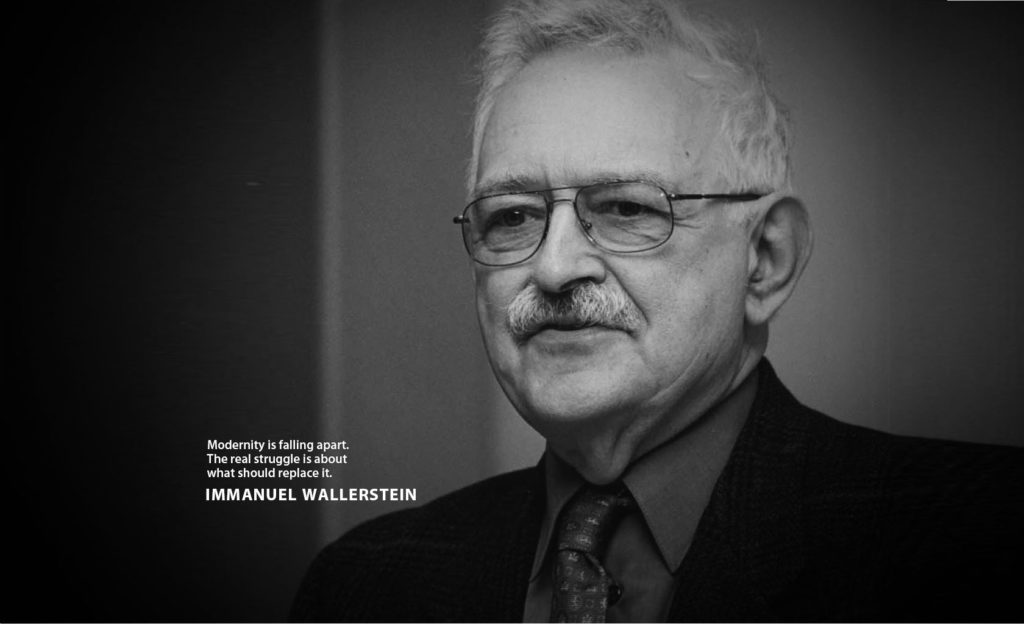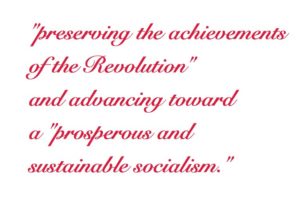
A state-regulated private sector: Why not?
HAVANA — The renowned American sociologist and politologist Immanuel Wallerstein coined the term “modern world-system” to explain the globalizing trends of capitalism and their contradictions.
In the framework of that theory, we are shown a world where the world’s growing economic integration coexists with very dissimilar forms of political organization, economic development and cultural expressions of the nations that compose it.
Wallerstein uses the terms “central nations and periphery” to describe the degree of dependency that results from such relations, and his account allows us to conclude that a constant in this historical process has been the attempts of the dominant nations to homogenize the world’s political system and impose their hegemony, confronting the resistance that comes from that diversity in conflict with said intention.

What happens at present is that those attempts at homogenization have failed and the modern world-system is going through a generalized crisis of governance where almost no model — be it rightist, center or leftist — guarantees the desired levels of political stability or provides effective formulas to solve the enormous problems faced by humanity.
Not even the United States, the hegemonic nation par excellence, seems capable of fully overcoming the effects of this crisis. Its system of governance also shows high levels of instability, expressed in the existing political, ideological and cultural polarization, as well as in the contradictions at all levels of society that threaten to alter historical patterns of consensus.
This is the reality faced by the “actualization of the Cuban economic model” in its effort to solve the island’s problems.
Cuba has the advantage that the harsh economic situation it’s had to experience — under the worst possible conditions, as a result of the disappearance of the European socialist camp and the economic blockade imposed by the United States — has not basically affected the stability of its political model, though it has generated social tensions domestically.
The only plausible explanation to this exceptionality is the model’s own virtues, i.e., a distributive capacity that has guaranteed high levels of equality, as well as social protection and human development, together with the formation of a wide-ranging collective consciousness based on ideals of national independence and sovereignty that go far back in Cuba’s political history.
The State’s intervention into the Cuban economy did not begin with the triumph of the Revolution in 1959 but did change its classist orientation in favor of the big popular masses, which turned out to be decisive in the road traveled this far.
The Cuban strategy consists in not renouncing this state intervention in the economy but making it more efficient. This runs counter to the conspiracy of the overblown state apparatus, which has slowed down economic development, to the degree that it seems associated with bureaucracy, immobility, a lack of incentives, corruption and opportunism.
Aside from the measures intended to reform the socialist state enterprise — which means rationalizing its scope of action and the norms that rule its operation — a component of the new model has been to propitiate the development of the nonstate sector of the economy, i.e., self-employed enterprise and small and medium companies whose existence and need for institutionalization has just been acknowledged by President Raúl Castro.
From this point of view, labor and private enterprise appear as an alternative for the system itself to solve some of the aforementioned distortions and spark the economy, although that brings other contradictions into the national political picture.
At the far ends of the debate are those who reject that alternative outright, because they consider it an aberration of the socialist system that tends to corrode its bases, and those who perceive it as the solution to all the problems, even though it means paving the road to capitalism.
It’s interesting to note that, at heart, both positions coincide with the United States’ opinion that the private sector is the actor par excellence of a regime change in Cuba and that Cuban society has no safeguards to prevent such change.
It is clear that private capital, in any of its forms, introduces unwanted effects in a society that tries to harmonize individual interests with collective interests for the common good.
But we are in the presence of a reality that transcends intentions. Cuba’s economic conditions fail to satisfy all the needs and expectations of the population, so the individualist option has been present not only in the consciousness and cultural expressions of many individuals but also in the existence of economic mechanisms that operate on the margins of the system.
Such is the case of the black market, which has grave consequences for the whole of society. In this scenario, the private sector is not a problem but part of the integral solution.
Once again, logic indicates that only the intervention of the State can regulate this process and, without hampering the improvements that the national economy demands, not surrender the nation’s future to the blind laws of the market.
Beyond ideology, that position is shared by thinkers and politicians of diverse currents, be they those who try to “save” capitalism from its own excesses or those who look for alternatives to capitalism.
Besides, life demonstrates that, when warranted by circumstances, state intervention has been a recourse for the most powerful nations. The U.S. is a good example of that.
More important still, the present reforms respond to the need to bring Cuba into the international reality, because at present there is no other possible world.
Access to the capitalist world market, foreign investment and sources of external financing are indispensable to the national economy, whose development is the mother of all political battles and the source of the country’s basic stability.
In the case of Cuba, there are no objective factors that bar the people’s full participation in the government’s economic and political activities. In better organizing this participation with a view to strengthening the consensus lies another of the fundamental exigencies of the ongoing process of improvement.
Within this logic can be inserted the development of the private sector, duly regulated by the State. To the degree that these people come from the popular sectors, they receive the advantages offered by the system and the political actors who act in full equality with the rest.
It could even become a democratizing factor of the economy, to the degree that it limits the impunity of bureaucracy, exposes the deficiencies of the state enterprise and incorporates patterns of better function and quality in production and services.
The conclusion is that, while Cuba cannot escape the crisis in the capitalist world-system, it doesn’t have to use models that have failed elsewhere. This could be a summary of the strategy of “preserving the achievements of the Revolution” and advancing toward a “prosperous and sustainable socialism.”
Although that objective today faces new challenges, another strength of the model is that it depends on the will and intelligence of the Cubans, a sovereign condition that constitutes a rarity in the present world.

